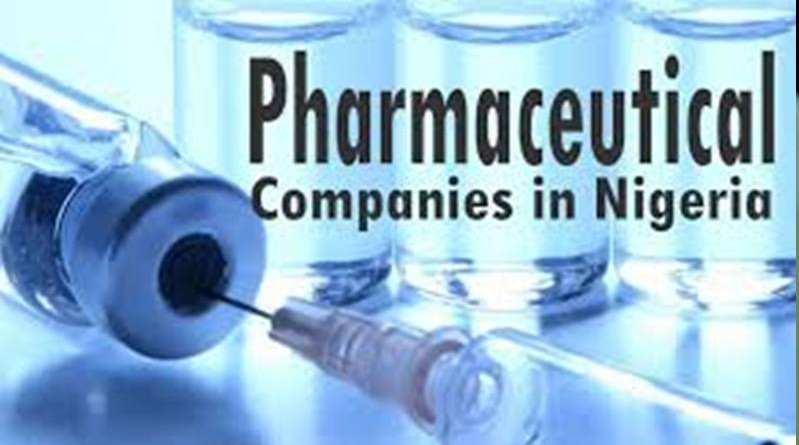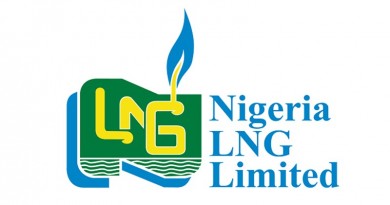Import Adjustment Tax killing pharmaceutical sector, Nnamdi Obi
Last year, the Federal Government reintroduced a 20 percent duty on all imported drugs which it tagged Import Adjustment Tax. It said the move was to assist local manufacture of drugs in the country. The industry instantly became divided. While some industry players hailed the government, others rejected the idea saying Nigeria’s poor infrastructure and high exchange rate do not favour local drug manufacturing.
They insisted that the measure would lead to high cost of drugs, increase in fake products and resort to traditional/herbal remedies. More than one year after, Daily Sun spoke with one of the key players in the industry, Pharmacist Nnamdi Obi, MD/CEO, Embassy Pharmaceuticals. He said his position then has been confirmed as Nigerians now pay more for drugs. He also said that absence of regular power supply is a major disincentive to any person who wants to manufacture in the country. Moreover, most of the raw materials needed for the manufacture of these drugs are all imported and that you can hardly be competitive at the exchange rate of about N360 to $1. Obi fielded questions on other issues bordering the industry and the economy in general.
Excerpts:
Fate of pharmaceutical sector with 20% duty
Well, it is still the same thing. Nigerians are paying much higher for pharmaceutical products now. The government decided to pretend to be acting in consonance with what they agreed in ECOWAS that there should be zero duty on pharmaceutical products. While the duty is still zero in Nigeria, there’s a tax of 20 per cent. So what is the difference between six and half a dozen?
Initially it was 20 percent before government moved it to zero percent and now went back to 20 per cent giving the impression that it is still zero percent. The duty on pharmaceutical products today is still zero percent but there’s a tax of 20 percent (called Import Adjustment Tax), value added tax of 20 per cent. It’s akin to giving it on right hand and taking it with left hand. The implication of that is that pharmaceutical products are very expensive taken cognisance of the fact that preponderance of products we have here are all imported because of the fact that we do have deficit of infrastructure.
Most people are prepared to put up industries, no doubt about that, but when we do reckon with the fact that hardly do we have up to 24 hours power supply. I don’t know of any state in Nigeria or any part of Nigeria that light is guaranteed of up to one quarter of a day supply. So, basically that is a disincentive to any person who wants to manufacture here. Like I have always said, all the raw materials that are needed to manufacture pharmaceutical products are imported except water which has to be treated anyway with chemical that is imported too.
FG’s reason for 20% raise
They said it is a way of encouraging local production of drugs. But most of us that are against the introduction of the 20 percent value added tax are not in any way oblivious of the fact that the real economy of every nation is dependent on how robust its industrial sector is. We are not oblivious of that fact. However, industries do not spring up over night. There are a lot of factors that will come into play for you to have a robust economy. Which raw materials do we have locally? We have abundant raw materials for various industrial aspects but which of them has really been exploited in commercial quantity as to help the local industries in utilising same for local drug production?
Two is that we all do know for a fact that our petrochemical is not functional. It has been in comatose for a long period of time. Had that petrochemical industry been functioning a lot of chemicals would be made available not only in pharma sector but in other sectors too. But we don’t have that. So, basically all raw materials that will go into pharma sector which I am so familiar with are going to be imported. And reckoning with the fact that our donors are not easy to come by, so the dictates of international economics will have to bear on what is happening locally like the fuel we are importing.
So when Nigerians clap that our foreign reserves are increasing in leaps and bounds as a result of the fact that the price of crude has gone high, we are happy about that but the attendant consequence on us all is that the finished products which include petrol, diesel are still going to be imported. So when you sell crude at a high price to an international businessman who refines it, you don’t expect him to sell it to you as a refined product for peanut. So the same applies to those of us in the pharma industry. When you go to get dollars at high exchange rate, whether you are importing or manufacturing, it is still going to be dictated by what is happening internationally. But when we have a very robust local industry that could source raw materials locally, then it would have been a win-win situation for most Nigerians.
So, drugs would continue to be very expensive. But for any product that could be manufactured locally, there’s an empirical fact, proven that can substantiate the claim that it could be manufactured locally why should it be imported? I am for it that it should not be imported. And let us not make claims based on sentiments. that is the problem we have in Nigeria-claims on sentiments. Ask ten Nigerians the population of the country today, you get ten different answers and it is not so in advanced clime. Somebody says it is 150 million. The other person says it is 180 million and another says it is 200 million.
The other day somebody said this is a country over 250 million. Does he have facts? Of course, not. I am sure if you go to our National Population Census Commission and ask them the population of Nigeria whatever they are going to give to will not be true. Just like Federal Government said last time when we had census that the population of Lagos state, which was debunked by Lagos State government, is 9 million. Lagos State government said later it was 20 million. Sorry I am digressing but I am using it to buttress the point that whatever decision we have to take at any given time must be predicated on empirical facts so that it will help us arrive at our desired destination.
How power, infrastructure constraints affect pharmaceutical sector
Of, course yes. Check it out. 80 percent of drugs in our country is imported. And there are specialised products that cannot be manufactured here. We don’t have a capsule making company. We are talking about vaccines. If you put up a vaccine factory, the temperature of that place has to be steady 24/7/365 days in a year. Where can it be guaranteed?
Except you use generator?
Yes, except you use generator to run your factory. So how are they going to compete? But people in other climes don’t go through this for these things are taken for granted. Soft gelatin capsule, for instance, none is manufactured in Africa. I don’t know of any country in Africa that manufactures soft-gelatin capsule because these are gelatins. The temperature has to be at a particular degree. Both soft gel and hard gel capsule, none of them is manufactured in Africa.
Capacity to manufacture drugs locally
They import same for hard but for soft, no.
They cannot import soft one?
Yes, if you import how are you going to transport it?
Which means it can’t be manufactured locally?
No, it cannot be manufactured locally. The gel must be capped under a particular temperature from the time it is manufactured up to the time it gets to the factory.
How technology and infrastructure can help
Of course yes. Nigeria has very competent hands. Nigerians are among the best brains all over the world but our greatest problem is that the environment here militates against any tangible or meaningful progress.
Feedback from IAT one year after
Of course, churches are having a field day. Why do you think churches are filled to the brim? They say one man’s meat is another man’s poison.
Why Nigerians now go more to churches for medical care, healing instead of hospitals
Of course, yes. But heavens help those who help themselves. Sorry, without denigrating the integrity of pastors but they are having a field day now. Somebody has malaria and says praise be to God you are going to be cured in Jesus name. Go back to your house. If the person dies, then that’s the end of the game.
Patronising traditional medicine or possible increase in fake drugs in the market
Of course yes. You see, for me I do not want to talk about our traditional medicine as if it is not efficacious. No. They are. As a pharmacist I know there’s a subject handle in the university called pharmacognosy where they talk about herbs. But at what dosage and concentration that is going to be efficacious? Each drug has its own consequences. Even common paracetamol, excess of it damages the liver. That’s why you asked take a particular number of tablets in a given day. Excess of it is injurious to health. Well, slowly but surely our traditional medicine is improving on its standards just like India. The world is turning to herbal products.
How to address challenges facing local drug makers
For me, what the government needs to do for local pharma industries is to grant them some facilities to enable them produce products for which they have core competencies. Like I said for any product we have facts, verifiable facts, that they could be manufactured locally and competitively, let it be banned. But for ones that we know we cannot, the duty should be zero percent for the interest of millions of Nigerians. What is this money for if the government rakes in, for instance, N500 billion from taxes on pharmaceutical products and even a Nigerian dies for not having access to relevant drugs while sick? Which should be of primary concern to government? It is not the N500 billion. But I know in Nigeria our lives mean nothing to anybody.
Obidike Jerry, Sunnewsonline.com




